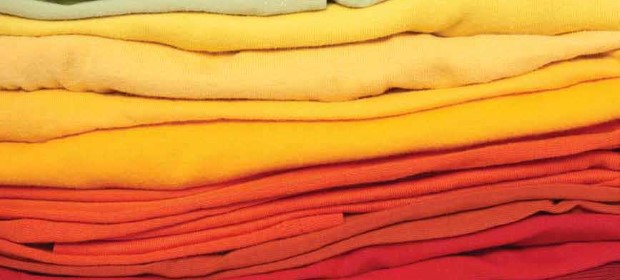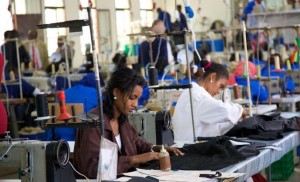Global clothing retailer H&M has recently placed its first orders with garment manufacturers in Ethiopia. The orders mark an important step in the direction of developing Ethiopia’s economy. A market, where every year an additional 1.4 million young people are looking for a job. “We see potential in Ethiopia, and have therefore started to source on a small scale”, H&M spokesperson Andrea Roos says.
A global company with stores in 56 countries and a competitive edge to its price tags, H&M – formerly known as Hennes & Mauritz – is permanently on the outlook for upcoming garment-producing industries to source its products from. But not only does it draw from such markets, H&M is rather keen to contribute as well. Andrea: “Ethiopia is a country with a huge development and growth potential, and we see that we can contribute to job creation and raise sustainability standards in the textile industry. We have one of the highest sustainability standards of any clothing company in the world for our suppliers. A commitment to our code of conduct is mandatory if a supplier is to enter into a business relationship with us.”
Under construction
Ethiopia is ‘a state under construction’, and its government is keen to usher in foreign direct investment, manufacturing companies and orders placed with Ethiopian producers. Ethiopian ambassador to the European Union, Mr Teshome Toga Chanaka, points out that his government likes to think of its role as creator of a conducive private-sector environment: “We are building infrastructure networks, invest in human resources through education, provide financial support, and are putting a legal framework in place.”
Mr Chanaka continues: “the Ethiopian government wants the country’s growth to be inclusive. We implement ‘pro-poor’ policies as we think it is our responsibility to create opportunities for all segments of society, including the low-income strata. By means of vocational training and a legal framework that protects workers’ rights, we work to make sure that everyone benefits from the investment flows into Ethiopia.”
On H&M’s side, its code of conduct lays out a minimum of requirements for the brand’s suppliers and their subcontractors. The code places restrictions on contractors in such areas as child labour, workers’ safety, compensation, leave and overwork, and promotes workers’ equal rights. Additionally, the documents showcases H&M’s care in handling of chemicals and disposal of wastewater. Andrea: “The suppliers we work with in Ethiopia fulfil our high sustainability standards, and have committed to our code of conduct.”
No predictions about possible expansion
“We believe that H&M’s decision to start sourcing from Ethiopia sends an important message to the international investor community”, says Ambassador Teshome Toga. “The fact that a globally known chain like H&M purchases from Ethiopian manufacturers means that our workforce is capable of meeting the chain’s high-quality manufacturing standards. At this point in time, H&M decided it wants to source from Ethiopia. If in the future it were interested to open a manufacturing facility of its own, the government of Ethiopia would warmly welcome that idea.”
However, H&M’s nascent trade relationship with Ethiopia should not be interpreted to have definite implications for the future, according to Andrea: “We choose not to make any predictions about possible expansion. H&M is an expansive company and we always look for new potential sourcing markets, but this does not mean we will stop buying from existing ones.”
Source: http://www.your-bizbook.com/en/Club-Africa-News/retailer-hm-discovers-attractive-manufacturing-market-ethiopia





